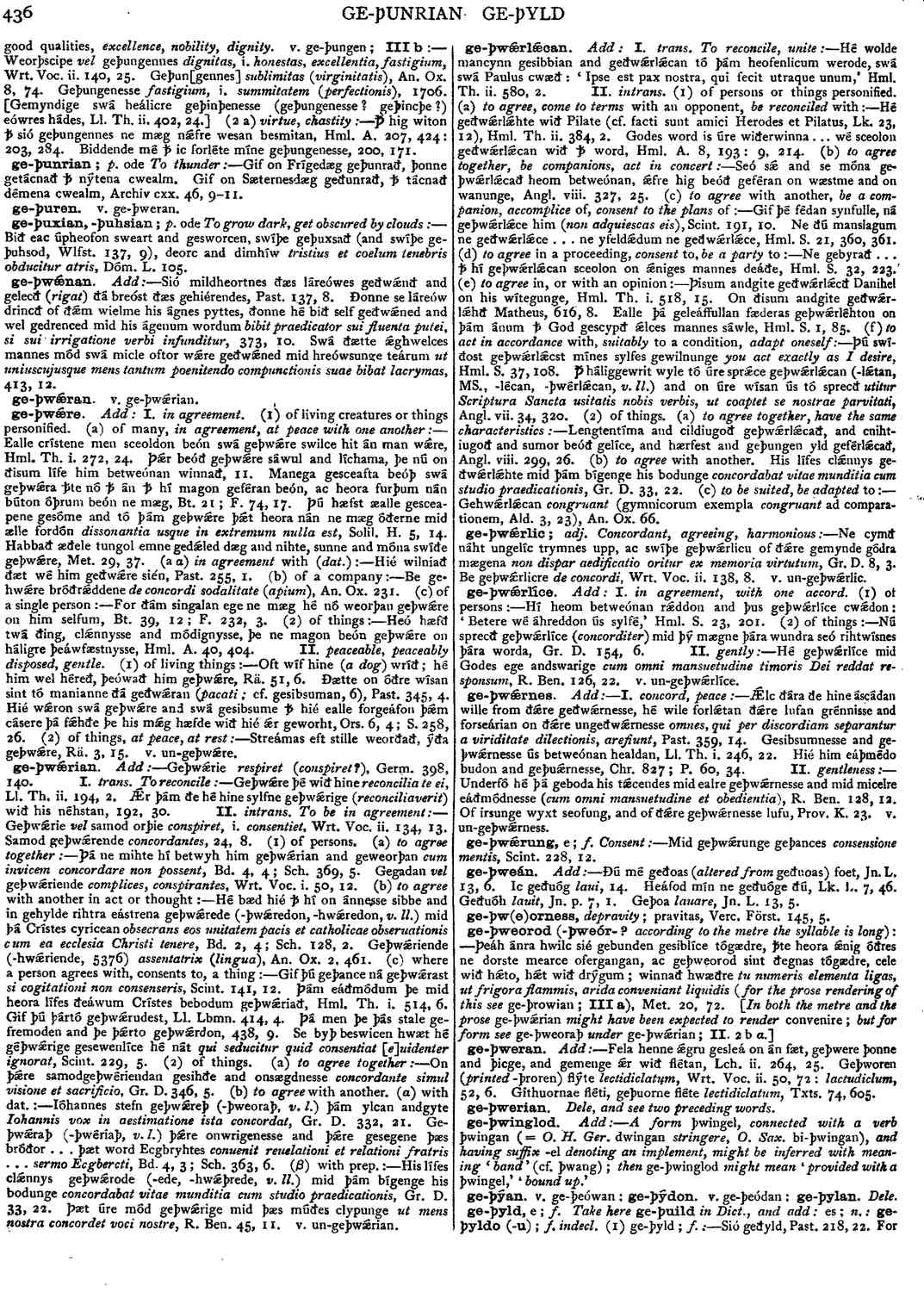ge-þwǽre
-
Ealle crístene men sceoldon beón swá geþwǽre swilce hit án man wǽre,
- Hml. Th. i. 272, 24.
- Þǽr beóð geþwǽre sáwul and líchama, þe nú on ðisum lífe him betweónan winnað, 11.
-
Manega gesceafta beóþ swá geþwǽra ꝥte nó ꝥ án ꝥ hí magon geféran beón, ac heora furþum nán búton óþrum beón ne mæg,
- Bt. 21; F. 74, 17.
-
Þú hæfst æalle gesceapene gesóme and tó þám geþwǽre þǽt heora nán ne mæg óðerne mid ælle fordón
dissonantia usque in extremum nulla est,
- Solil. H. 5, 14.
-
Habbað æðele tungol emne gedǽled dæg and nihte, sunne and móna swíðe geþwǽre, Met. 29, 37. (a α)
in agreement with (dat. )
:-- Hié wilniað ðæt wé him geðwǽre sién,- Past. 255, 1.
-
Be gehwǽre bróðrǽddene
de concordi sodalitate (apium ),
- An. Ox. 231.
-
For ðám singalan ege ne mæg hé nó weorþan geþwǽre on him selfum,
- Bt. 39, 12; F. 232, 3.
-
Heó hæfð twá ðing, clǽnnysse and módignysse, þe ne magon beón geþwǽre on háligre þeáwfæstnysse,
- Hml. A. 40, 404.
-
Oft wíf hine (
a dog
) wríð; hé him wel héreð, þeówað him geþwǽre,- Rä. 51, 6.
-
Ðætte on óðre wísan sine tó manianne ðá geðwǽran (
pacati;
cf. gesibsuman, 6),- Past. 345, 4.
-
Hié wǽron swá geþwǽre and swá gesibsume ꝥ hié ealle forgeáfon þǽm cásere þá fǽhðe þe his mæg hæfde wið hié ǽr geworht,
- Ors. 6, 4; S. 258, 26.
-
Streámas eft stille weorðað, ýða geþwǽre,
- Rä. 3, 15.
Bosworth, Joseph. “ge-þwǽre.” In An Anglo-Saxon Dictionary Online, edited by Thomas Northcote Toller, Christ Sean, and Ondřej Tichy. Prague: Faculty of Arts, Charles University, 2014. https://bosworthtoller.com/50175.
Checked: 0